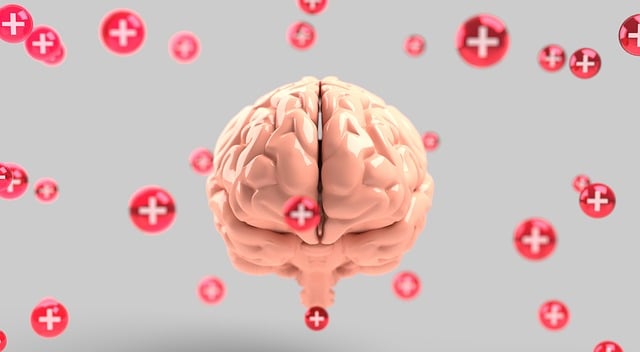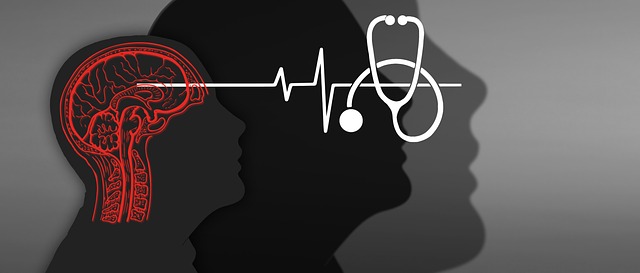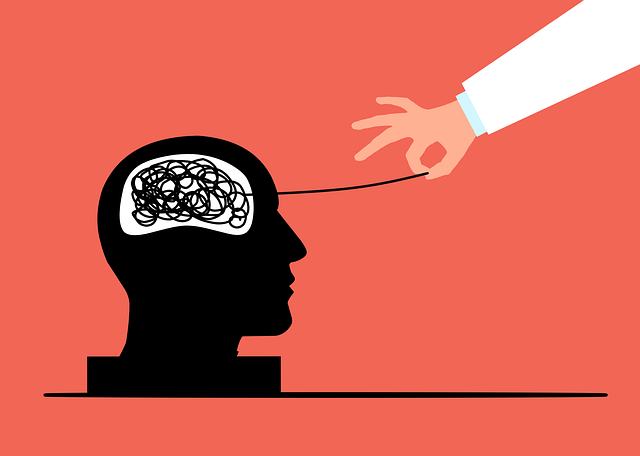In a diverse society, bilingual therapy programs tailored to mental wellness coaching for adolescent teens are essential to address academic pressure, social media influences, and stigma. These programs combine evidence-based practices with cultural sensitivity, providing access to support in clients' primary languages. Key components include tailored curricula focusing on resilience, coping mechanisms, and self-care, along with trauma support and compassion cultivation. Measuring success through bilingual services, Trauma Support Services, Compassion Cultivation Practices, and a Mental Wellness Podcast Series ensures impactful therapy for adolescent teens bilingual initiatives.
Mental wellness coaching programs for adolescents are gaining traction as a vital tool in addressing growing mental health challenges among young people. This article explores key aspects of developing effective coaching models, from understanding adolescent mental health issues to designing culturally sensitive curricula and bilingual therapy programs tailored to the unique needs of diverse teen populations. By examining successful strategies and measurement techniques, we aim to highlight how these initiatives promote holistic wellness for adolescents.
- Understanding Adolescent Mental Health Challenges
- The Need for Bilingual Therapy Programs
- Designing Effective Coaching Curricula
- Incorporating Cultural Sensitivity in Coaching
- Measuring Success and Impact on Teen Wellness
Understanding Adolescent Mental Health Challenges

Adolescent mental health challenges are a growing concern in today’s fast-paced world. Teenagers often grapple with issues such as anxiety, depression, and stress due to various factors like academic pressure, peer relationships, and social media influences. Recognizing these struggles is the first step towards providing effective support. Many adolescents may face barriers when seeking traditional therapy, including stigma, cost, and limited access to specialized services.
Bilingual mental wellness coaching programs offer a promising solution, especially for diverse communities. These programs provide therapy tailored to adolescent teens’ unique needs, using culturally sensitive approaches. By combining evidence-based practices with a focus on stress reduction methods and confidence-boosting techniques, these initiatives aim to enhance mental health outcomes. A Mental Wellness Podcast Series Production catering to adolescents could further promote awareness and accessibility, encouraging open conversations about mental wellness.
The Need for Bilingual Therapy Programs

In today’s diverse society, the need for bilingual therapy programs is more pressing than ever, especially within mental wellness coaching for adolescent teens. As a significant portion of the youth population speaks languages other than English at home, it becomes imperative to offer specialized support that caters to their unique needs and cultural backgrounds. Traditional therapy often falls short in addressing the specific challenges faced by these individuals, such as language barriers and cultural differences, which can hinder effective communication strategies and emotional regulation.
Mental wellness coaching programs development should actively include bilingual therapists who possess the skills to facilitate sessions in both the client’s primary language and English. This approach ensures that teens feel more comfortable expressing their thoughts and emotions, fostering a deeper connection with their coach. By combining cultural sensitivity with evidence-based practices, these programs can better equip adolescents with the tools needed to navigate mental health challenges, ultimately enhancing their overall well-being.
Designing Effective Coaching Curricula

When designing coaching curricula for mental wellness, it’s crucial to tailor programs that cater to specific demographics, such as adolescent teens, offering therapy in a language they understand is an essential step. Bilingual coaching ensures cultural sensitivity and accessibility, fostering trust and open communication. The curriculum should integrate evidence-based techniques and strategies tailored to the age group, focusing on building resilience, coping mechanisms, and self-care routines for better mental health.
Incorporating modules on burnout prevention strategies for healthcare providers is vital to support mental health professionals. This includes teaching risk management planning to mitigate potential risks and challenges in the field. By balancing their own well-being, coaches can effectively guide clients towards healthy habits while maintaining professional integrity.
Incorporating Cultural Sensitivity in Coaching

Incorporating cultural sensitivity into mental wellness coaching programs is paramount for effective support, especially when catering to adolescent teens from diverse backgrounds. Cultural competency involves understanding and appreciating the unique beliefs, values, and practices that shape individuals’ lives, ensuring coaches can provide services tailored to each teen’s specific needs. This approach recognizes that one-size-fits-all strategies may not address the complex interplay of cultural factors influencing mental health.
For bilingual teens seeking therapy, cultural sensitivity means coaching programs should be accessible in their native languages, facilitating open communication and fostering trust. By integrating mental health education within a culturally responsive framework, coaches can teach emotional well-being promotion techniques that resonate with diverse populations. This inclusive design for mental health awareness initiatives ensures that adolescents from various cultural backgrounds can benefit from coaching, receiving support that respects and embraces their individual identities.
Measuring Success and Impact on Teen Wellness

Measuring the success and impact of mental wellness coaching programs for adolescent teens is a crucial aspect of ensuring their effectiveness. In today’s digital era, where access to therapy for adolescent teens has become more accessible, it’s essential to adopt innovative approaches to evaluate progress. Bilingual services play a pivotal role in catering to diverse teen populations, offering tailored support for those who may face language barriers in traditional therapy settings.
By integrating Trauma Support Services and Compassion Cultivation Practices into coaching programs, coaches can create safe spaces for teens to process their experiences and develop resilience. Additionally, producing a Mental Wellness Podcast Series can capture the impact of these programs by sharing success stories and raising awareness about adolescent mental health. This multimedia approach not only reaches a wider audience but also provides quantifiable data on engagement and emotional connections, further enhancing our understanding of effective coaching methodologies.
Mental wellness coaching programs play a pivotal role in addressing the unique challenges faced by adolescent teens, especially those from diverse cultural backgrounds. By incorporating bilingual therapy, cultural sensitivity, and evidence-based curricula, coaches can significantly enhance the well-being of young individuals. These initiatives ensure that support is accessible and tailored to the specific needs of each teen, fostering a healthier and more inclusive environment. With ongoing evaluation and refinement, mental wellness coaching has the potential to revolutionize adolescent care, offering a promising path towards improved mental health outcomes for all.














